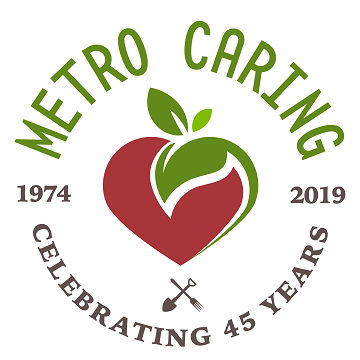
Exploring Lent Practically
This year we’re inviting everyone at Park Church who is participating in Lent to engage in three kinds of spiritual practices: fasting, prayer, and generosity. We covered the basics in our “Engaging With Lent 2019” guide that we’ll be handing out on Sunday, but here we’ll take a little bit of time around each practice but also share some practical ways of exploring each. James and I also talked in depth about what Lent is, where it came from, and some ways of exploring it here.
Fasting
Fasting is one of those disciplines that most Christians know they should do, but rarely get around to it. The interesting thing is that it’s one of the disciplines we see Jesus doing (Matthew 4:1-11; 17:21), a discipline He assumes His disciples are doing (Matthew 6:16) and a discipline we see the early church continuing to do (Acts 13:1-3; 14:23). So what is it? David Mathis defines fasting as “voluntarily going without food — or any other regularly enjoyed, good gift from God — for the sake of some spiritual purpose.”
Fasting ultimately is about refraining from one thing that we might engage more intentionally with another, namely God. Sam Storms comments, “The ironic thing about fasting is that it really isn’t about not eating food. It’s about feeding on the fullness of every divine blessing secured for us in Christ. Fasting tenderizes our hearts to experience the presence of God. It expands the capacity of our souls to hear his voice and be assured of his love and be filled with the fullness of his joy. Let me say it again: Fasting is not primarily about not eating food. It is primarily about feasting on God.”
Practically speaking, there are a couple great ways of exploring fasting during Lent:
One is called a whole fast, where you actually skip whole meals with the exception of water, juice, or liquids. This kind of fast can be hard for some people due to particular physical conditions so don’t just jump in without considering how it might affect you. A way of easing your way into this whole fast is simply by skipping breakfast and lunch on a day and eating dinner in the evening. Another way would be to do a 24 hour whole fast where you only drink water, juice, or liquid during that day.
Another way is called a partial fast. This might look like you giving up eating sugar or drinking alcohol. Others choose to give up things like social media, Netflix, etc. The important thing isn’t necessarily what you’re giving up, but what you do in the absence of that item and where it leads your heart. Fasting generally is never a solo discipline, but rather should always be practiced in conjunction with prayer.
Prayer
We believe that prayer is an essential part of what it means to be both a human and a Christian. It’s about communion and communication with the God we were created to know and walk with. As we fast during this season of Lent, we also feast on God through prayer! We encourage everyone to find meaningful ways to pray corporately and personally in this season.
Here are a few ways to explore praying corporately with others:
- Join us for our pre-service prayer on Sundays at 8:15am or 4:15pm in the basement!
- Come to our Sunday services
- Thursdays at 6:30am in the gallery
- Pray with your Gospel Communities
- Intentionally pray daily or weekly with a friend throughout Lent
- Pray prayers of self-examination like David in Psalm 139:23-24.
- Pray the Lord’s Prayer in the mornings and/or evenings
- Pick a different psalm each day to pray and meditate on throughout the day
- Check out the prayer app called “Pray As You Go” which has some great contemplative prayers
- Another app called “Daily Prayer” has Morning Prayers, Evening Prayers, and Night Prayers. Dependent on when you open it up, it takes you there automatically! Easily accessible.
- Where do you find refuge, safety, comfort, and escape? When you are fearful, discouraged, and upset, where do you run? Do you run to God for comfort and safety or to something else? (To food, to others, to work, to solitude?)
- What do you love? Is there something you love more than God or your neighbor?
- What do you want? What do you desire? What do you crave, long for, wish? Whose desires do you obey?
- What do you think about most often? In the morning, to what does your mind drift instinctively? When you are doing a menial task or driving alone in your car, what captures your mind? What is your mindset?
- What do you talk about? What occupies your conversations with others? What subjects do you tend to discuss over and over with your friends? The Bible says it is out of the heart that our mouths speak.



